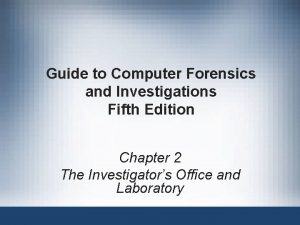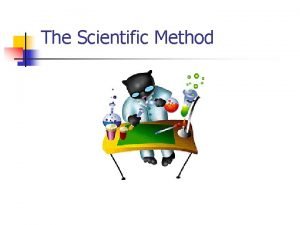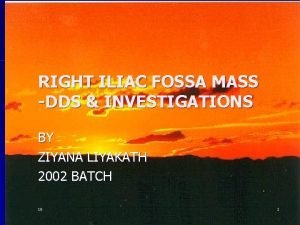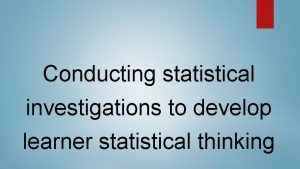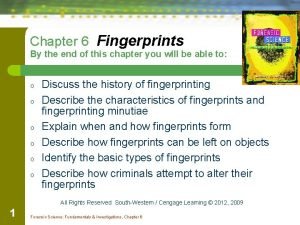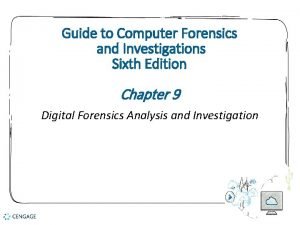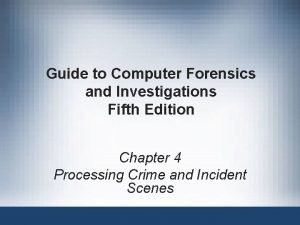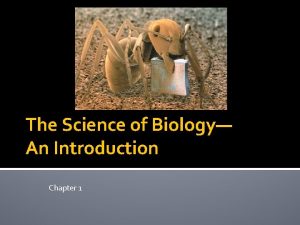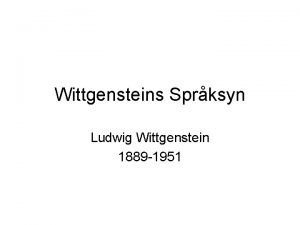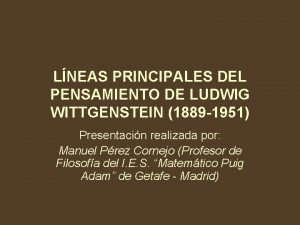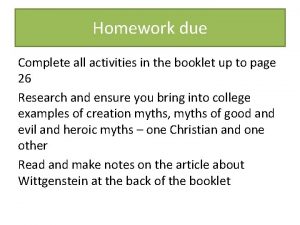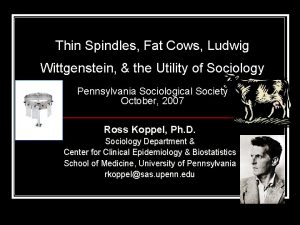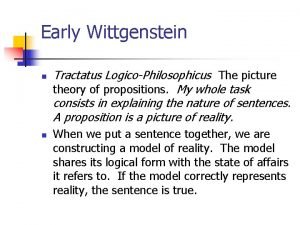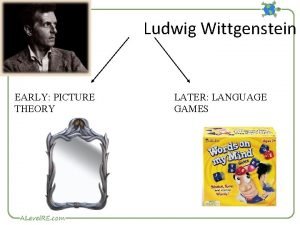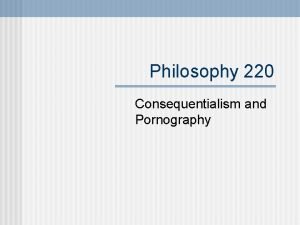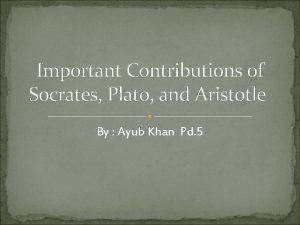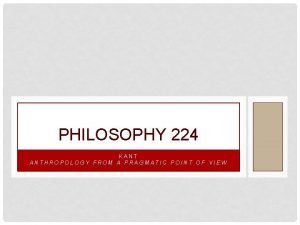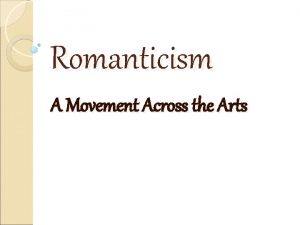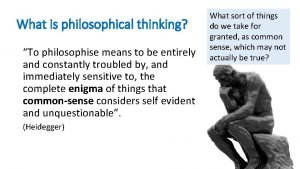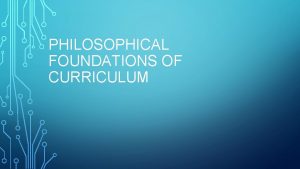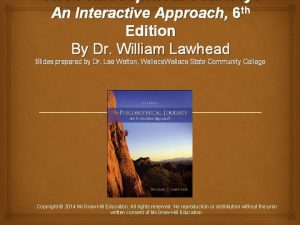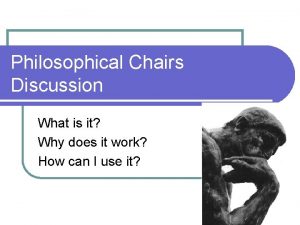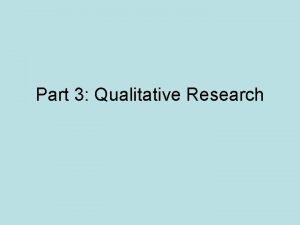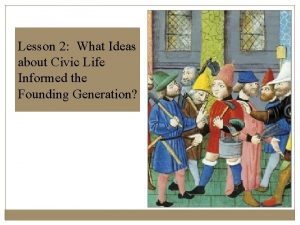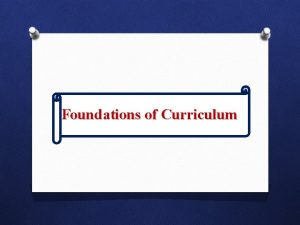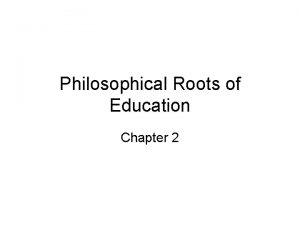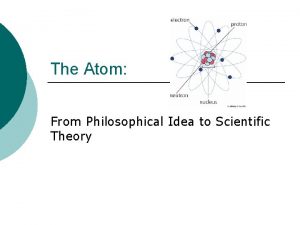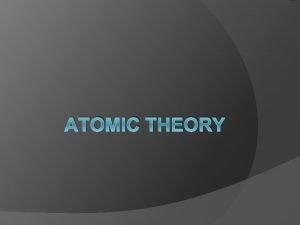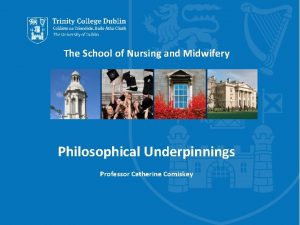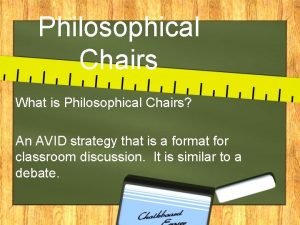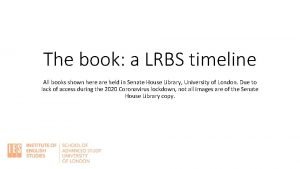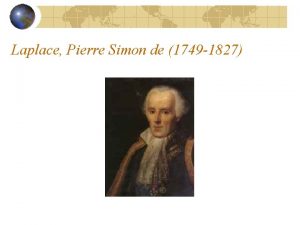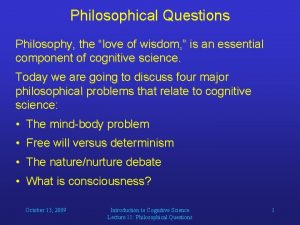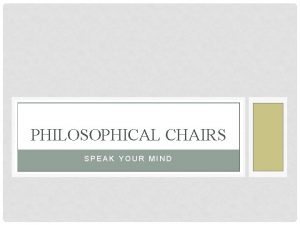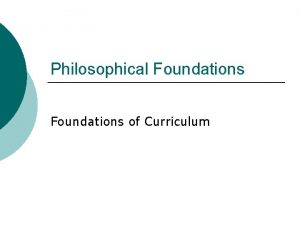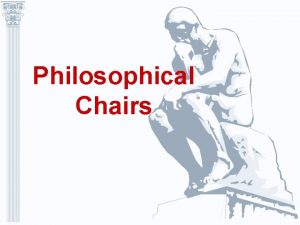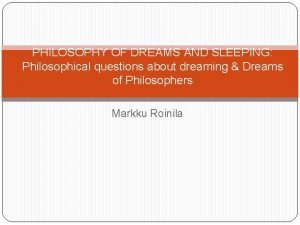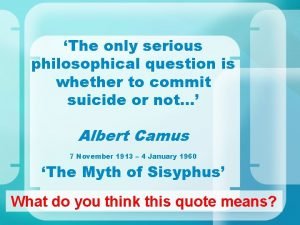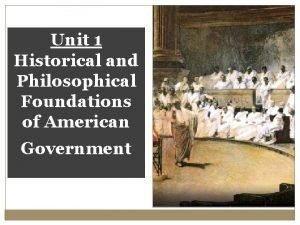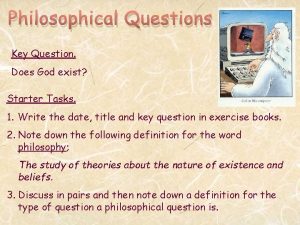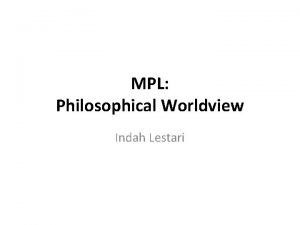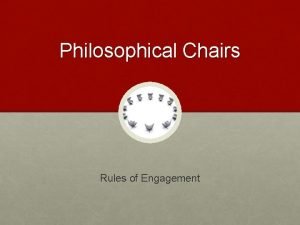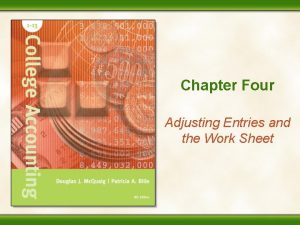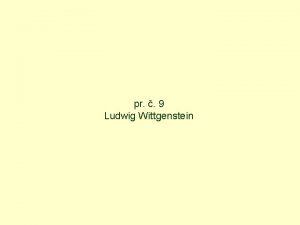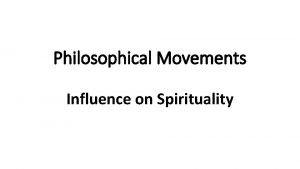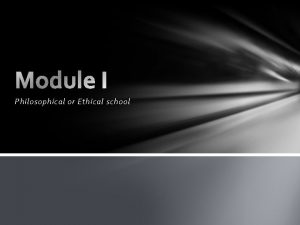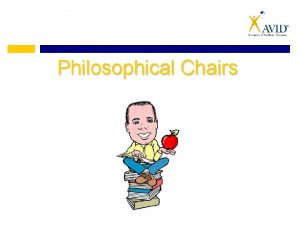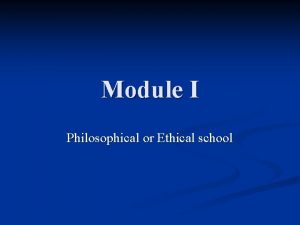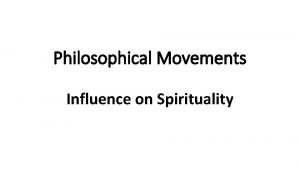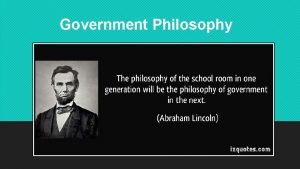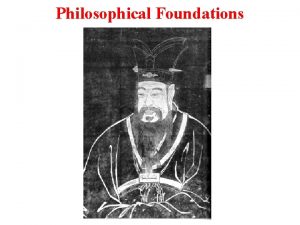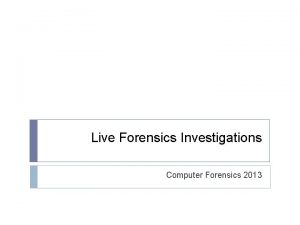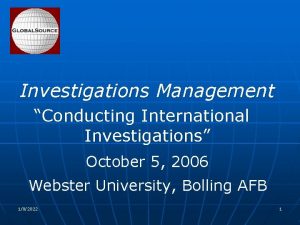Wittgenstein contra Wittgenstein Philosophical Investigations G E M





![From the Preface “[The ideas in the Investigations] could be seen in the right From the Preface “[The ideas in the Investigations] could be seen in the right](https://slidetodoc.com/presentation_image_h2/80787f770f3748e5583b722e625fc26c/image-6.jpg)






































![Language Games [The representationalist philosopher], we might say, does describe a system of communication; Language Games [The representationalist philosopher], we might say, does describe a system of communication;](https://slidetodoc.com/presentation_image_h2/80787f770f3748e5583b722e625fc26c/image-45.jpg)









![Satisfying Particular Criterion Not Necessary “[I]n different circumstances, we apply different criteria. ” Satisfying Particular Criterion Not Necessary “[I]n different circumstances, we apply different criteria. ”](https://slidetodoc.com/presentation_image_h2/80787f770f3748e5583b722e625fc26c/image-55.jpg)






- Slides: 61

Wittgenstein contra Wittgenstein

Philosophical Investigations

G. E. M. Anscombe (1919 -2001) • Catholic philosopher • Student (and later translator) of Wittgenstein • Her work Intention has been called “the foundational text in analytic philosophy of action. ”


Philosophical Investigations • Philosophische Untershungen • Published posthumously in 1953 • Part I finished in 1946
![From the Preface The ideas in the Investigations could be seen in the right From the Preface “[The ideas in the Investigations] could be seen in the right](https://slidetodoc.com/presentation_image_h2/80787f770f3748e5583b722e625fc26c/image-6.jpg)
From the Preface “[The ideas in the Investigations] could be seen in the right light only by contrast with and against the background of [the Tractatus]. ”

Against the Augustinian Picture

The Augustinian Conception “When they (my elders) named some object, and accordingly moved towards something, I saw this and I grasped that the thing by the sound they uttered when they meant to point it out…

The Augustinian Conception …Their intention was shewn by their bodily movements, as it were the natural language of all peoples: the expression of the face, the play of the eyes, the movement of other parts of the body, and the tone of voice which expresses our state of mind in seeking, having, rejecting, or avoiding something…

The Augustinian Conception …Thus, as I heard words repeatedly used in their proper places in various sentences, I gradually learnt to understand what objects they signified; and after I had trained my mouth to form these signs, I used them to express my own desires. ”

Summary “The individual words in language name objects– sentences are combinations of such names. ”

Wittgenstein vs. Representation Wittgenstein thinks this “representational view” of language is incorrect. The meaning of a sentence is how we use it. Often there is no sense to be made of which thing is named or denoted by the word.

The Use Theory 43. For a large class of cases– though not for all– in which we employ the word “meaning” it can be defined thus: the meaning of a word is its use in the language.

At the apple store…

I need 5 red apples please!


I need 5 red apples please!





Some time later…


“Five!”

Wittgenstein vs. Representation “But how does he know where and how he is to look up the word ‘red’ and what he is to do with the word ‘five’? ” --Well, I assume that he ‘acts’ as I have described. Explanations come to an end somewhere.

Wittgenstein vs. Representation But what is the meaning of the word ‘five’? --No such thing was in question here, only how the word ‘five’ is used.

Dis-Solving Philosophical Problems This is the general structure of how the use theory attempts to dis-solve philosophical problems. STEP 1: Explain how we use some particular bit of language. STEP 2: Claim that “explanation has to stop somewhere”: here.

Meaning Is Use Importantly, every theory of meaning thinks that how we use our words plays some role in what they mean. How could it not? The use theory is importantly different because it identifies use with meaning.

The Use Theory of Meaning

In language we play games with words.

Language Games • Wittgenstein thinks that language is made up of a variety of different language games, with differing rules. • To understand language more generally, he looks at different make-believe primitive languages and ways of teaching children language.

The Slab Language The language is meant to serve for communication between a builder A and an assistant B. A is building with building-stones: there are blocks, pillars, slabs and beams. B has to pass the stones, in the order in which A needs them.

The Slab Language For this purpose they use a language consisting of the words "block", "pillar" "slab", "beam". A calls them out; — B brings the stone which he has learnt to bring at such-and-such a call. Conceive this as a complete primitive language.


Displacement Animals can communicate messages about things and events in their current environment, but not: • Things that are not around right now • Events in the past • Events in the future • Things that don’t exist

Displacement

Examples of Language Games (23) • Giving orders and obeying them • Describing the appearance of an object, or giving its measurements • Constructing an object from a description (a drawing) • Reporting an event • Speculating about an event • Forming and testing a hypothesis • Presenting the results of an experiment in tables and diagrams • Making up a story; and reading it

Examples of Language Games (23) • Play-acting • Singing catches • Guessing riddles • Making a joke; telling it • Solving a problem in practical arithmetic • Translating from one language to another • Asking, thanking, cursing, greeting, praying. [Etc. ]

The Game Analogy To understand Wittgenstein’s analogy of language and games, we need to understand two concepts: • Family Resemblance • Criteria vs. Symptoms

Necessary and Sufficient Conditions Some concepts have necessary and sufficient conditions for applying to things: Necessary: If the concept applies, then you meet the condition. Sufficient: If you meet the condition, then the concept applies.

Example: Dogs Being a mammal is a necessary condition for being a dog, because every dog is a mammal. Being a Chihuahua is a sufficient condition for being a dog, because every Chihuahua is a dog.

Family Resemblance But on Wittgenstein’s view, “game” is not a concept like this: there is nothing that all games have in common. Being a game is a matter of “family resemblance”: you must be similar enough to other games to count.

Game Features • Points/ score • Winners and losers • Enjoyable • Involves skill • Uncertain outcome • Occurs at specific time and place • Voluntary participation • Rules

![Language Games The representationalist philosopher we might say does describe a system of communication Language Games [The representationalist philosopher], we might say, does describe a system of communication;](https://slidetodoc.com/presentation_image_h2/80787f770f3748e5583b722e625fc26c/image-45.jpg)
Language Games [The representationalist philosopher], we might say, does describe a system of communication; only not everything that we call language is this system.

Language Games And one has to say this in many cases where the question arises 'Is this an appropriate description or not? ' The answer is: 'Yes, it is appropriate, but only for this narrowly circumscribed region, not for the whole of what you were claiming to describe. "

Language Games It is as if someone were to say: ‘A game consists in moving objects about on a surface according to certain rules. . . ’ --and we replied: You seem to be thinking of board games, but there are others.

Criteria vs. Symptoms There are different ways of telling that a field goal has been scored in basketball: • Watching the scoreboard • Listening to the crowd • Hearing the announcer say “a field goal has been scored” • Seeing the ball go through the hoop.

“If a philosopher asks, ‘Why does the fact that the ball went through the basket show that a field goal has been scored? ’ a natural reply would be, ‘That is what the rules of the game say; that is the way the game is played. ’”

Criteria “Once we understand the rules for playing chess, the question whether a player has won when he has achieved checkmate cannot arise. ”

Criteria The ball going through the hoop is criterial of a goal being scored. There is a logical or conceptual connection between the two. BUT: This doesn’t mean going through the hoop always counts as scoring a basket!

Satisfying Criterion Not Sufficient First scenario: the ball must be “in play”– for example, not after the buzzer has sounded, not shot from out-of-bounds, etc. Second scenario: the ball must be in a situation where “the rules apply”: not flying around the stadium and changing shape.

Relation Between Criteria and Symptoms A symptom is “a phenomenon of which experience has taught us that it coincided in some way or other, with the phenomenon which is our defining criterion. ” Symptoms are correlations between criteria and non-criteria.

Relation Between Criteria and Meaning Giving the criterion for someone else having a toothache “is to give a grammatical explanation about the word ‘toothache’ and, in this sense, an explanation concerning the meaning of the word ‘toothache’. ”
![Satisfying Particular Criterion Not Necessary In different circumstances we apply different criteria Satisfying Particular Criterion Not Necessary “[I]n different circumstances, we apply different criteria. ”](https://slidetodoc.com/presentation_image_h2/80787f770f3748e5583b722e625fc26c/image-55.jpg)
Satisfying Particular Criterion Not Necessary “[I]n different circumstances, we apply different criteria. ”

Satisfying Criterion Not Sufficient

Wittgenstein on the Meter Rod in Paris “There is one thing of which one can say neither that it is one metre long, nor that it is not one metre long, and that is the standard metre in Paris. –But this is, of course, not to ascribe any extraordinary property to it, but only to mark its peculiar role in the language-game of measuring with a metre-rule. ”

Changing Criteria is Changing Meaning If we introduce a new criterion for being a meter (as we now have), we can measure the rod in Paris, and determine whether it is or isn’t one meter. In this language-game, ‘meter’ means something different.

Fodor and Chihara’s Summary X is a criterion of Y in situations of type S if the very meaning or definition of ‘Y’ justifies the claim that one can recognize, see, detect, or determine the applicability of ‘Y’ on the basis of X in normal situations of type S. In a normal situation, the problem of gathering evidence which justifies concluding Y from X simply does not arise.

From the Rest of the Reading

W vs. W • Against logically proper “names” • Against the naïve description theory • Against absolute simples/ complexes • Against the “general form of a proposition” • Against the ideal of “ideal languages”
 Nação contra nação
Nação contra nação Guide to computer forensics and investigations 5th edition
Guide to computer forensics and investigations 5th edition Numerical datum crossword puzzle clue
Numerical datum crossword puzzle clue Guide to computer forensics and investigations
Guide to computer forensics and investigations Scientific investigations
Scientific investigations Nrich maths investigations
Nrich maths investigations Appendiculolith
Appendiculolith Types of statistical investigation
Types of statistical investigation Chs investigations
Chs investigations Pasco child protective services
Pasco child protective services Craigslist investigations
Craigslist investigations 3 weeks pregnant ultrasound
3 weeks pregnant ultrasound Jarrod bowditch
Jarrod bowditch Chapter 6 fingerprints
Chapter 6 fingerprints Chs investigations
Chs investigations Marking bad clusters data hiding technique
Marking bad clusters data hiding technique Investigations
Investigations Bmv investigations
Bmv investigations Why aren t descriptive investigations repeatable
Why aren t descriptive investigations repeatable Ludwig dmca
Ludwig dmca Pensamiento de wittgenstein
Pensamiento de wittgenstein Wittgenstein language games
Wittgenstein language games William foote whyte
William foote whyte Master morality vs slave morality
Master morality vs slave morality Picture theory wittgenstein
Picture theory wittgenstein Basics of consequentialism
Basics of consequentialism Contributions of socrates plato and aristotle
Contributions of socrates plato and aristotle Ideas of kant
Ideas of kant Philosophical and artistic movement
Philosophical and artistic movement Philosophical thinking means
Philosophical thinking means Philosophical foundations of curriculum
Philosophical foundations of curriculum Read the philosophical journey: an interactive approach
Read the philosophical journey: an interactive approach Topics for philosophical chairs
Topics for philosophical chairs Feature of qualitative research
Feature of qualitative research What philosophical ideas informed the founding generation?
What philosophical ideas informed the founding generation? Philosophical foundations of curriculum development
Philosophical foundations of curriculum development Philosophical roots of education
Philosophical roots of education The atom: from philosophical idea to scientific theory
The atom: from philosophical idea to scientific theory The atom from philosophical idea to scientific theory
The atom from philosophical idea to scientific theory Philosophical underpinnings of nursing
Philosophical underpinnings of nursing Philosophical chairs avid
Philosophical chairs avid Gooyout
Gooyout Philosophical questions about identity
Philosophical questions about identity Ading
Ading Philosophical essay on probabilities
Philosophical essay on probabilities Ridge parallelism classification
Ridge parallelism classification Philosophical questions on love
Philosophical questions on love Philosophical chairs rules of engagement
Philosophical chairs rules of engagement Idealism and curriculum
Idealism and curriculum Philosophical chairs topics 2020
Philosophical chairs topics 2020 Philosophical questions about dreams
Philosophical questions about dreams The only serious philosophical question
The only serious philosophical question Philosophical foundations of the american revolution
Philosophical foundations of the american revolution Philosophical epq questions
Philosophical epq questions Philosophical questions
Philosophical questions What are the four philosophical worldviews
What are the four philosophical worldviews Philosophical chairs rules
Philosophical chairs rules Schuluniform geschichte
Schuluniform geschichte Lascivia5
Lascivia5 Habemus senatus consultum contra te
Habemus senatus consultum contra te Grssen
Grssen Contra account definition
Contra account definition

